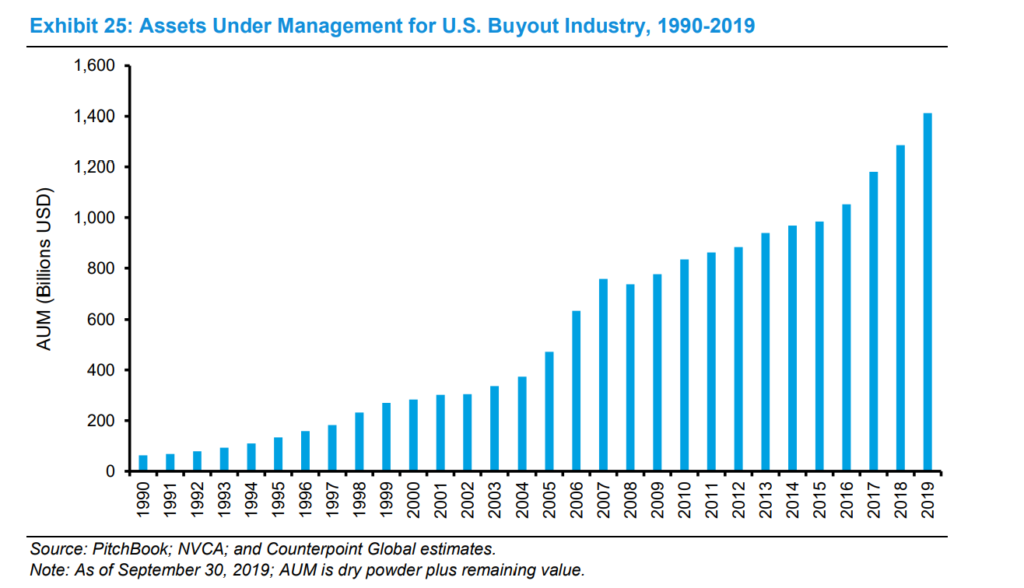I often feel like the financial markets are crumbling around me. It’s not their price levels that trouble me, but their health. The capital markets are a tremendous boon to humanity. However, intrusive central bank and government policies seem to strangle the golden geese of capitalism and free markets increasingly.
Some argue that the neurotic obsessions with market stability are killing active investment management and disarming the very mechanisms that make financial markets invaluable. The decline is inevitable; the only question is whether it comes slowly or as a quick collapse. While I’m sympathetic to this perspective, what if we humans are better and smarter than credited? What if the investment markets aren’t dying but evolving to circumvent the unwanted barriers?
Let’s face it; it’s hard being human. The world is highly complex, fret with imperfect information. It isn’t easy to make sense of things. Often, multiple explanations can seem just as plausible, given the same set of facts. As conceptual animals, chaos is paralyzing and uncomfortable.
Perhaps this is why we seek narratives; they help explain phenomena and enable action. However, even the most water-tight narrative can spring a leak, given new information or a different perspective. I’m beginning to see the expansion of private investment markets in this light. I had viewed their growth as negative at first but now think differently.
If It Bleeds It Leads
Investing today is as hard as it’s ever been. Bond yields are the lowest in history. Equities appear overvalued. Alpha—the amount of excess return available to active investment managers—is a mere fraction of what it had been. Everything’s gone passive. There’s no return to be had no matter how hard one tries. Why is this happening?
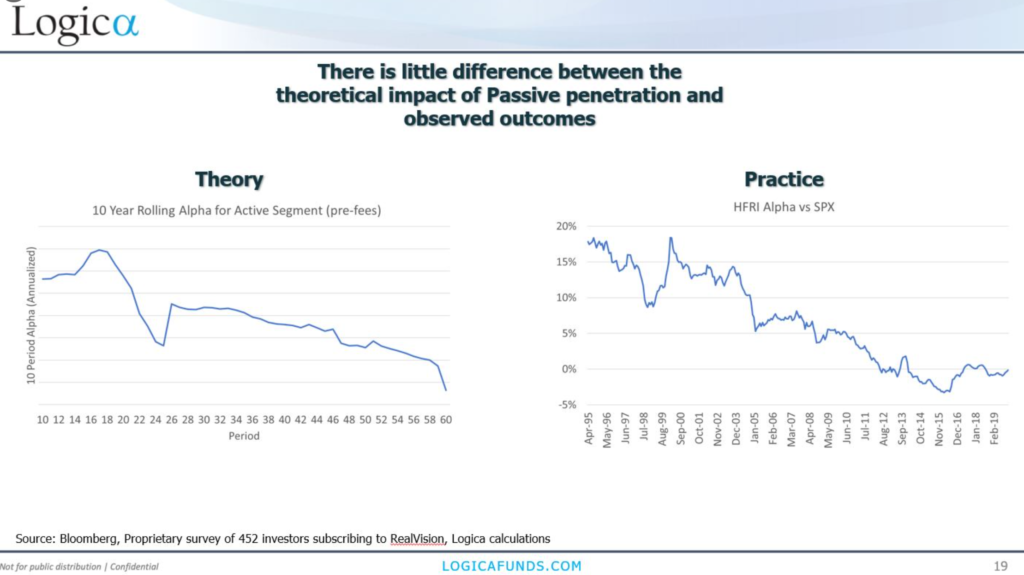
Active manager “alpha” has been falling for decades in equity markets.
To some, these conditions indicate the market’s demise. Central bank intervention has reached such a large degree that the capital markets can no longer function properly. They’re rigged to rise. Stripped of the freedom to fluctuate, investment markets can no longer provide the critical price signals they are designed to deliver.
Furthermore, investors are flocking to private markets. Private equity, venture capital, direct lending, and other investment strategies are on the rise. Starved for yield, investors ignore obvious risks to make an extra few basis points of return. It’s pure debauchery. Society is in decay, so the story goes.
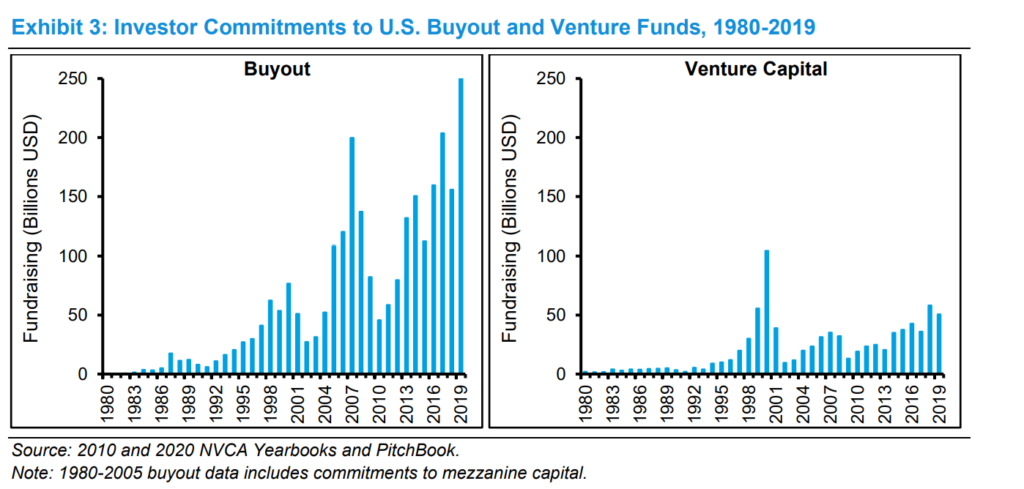
Half-Truths and Full-Truths
Back To The Future
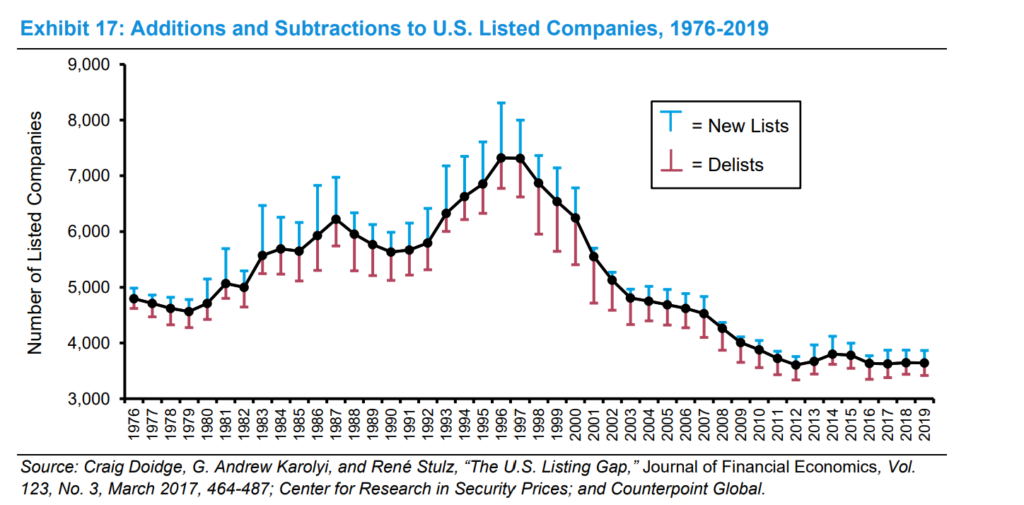
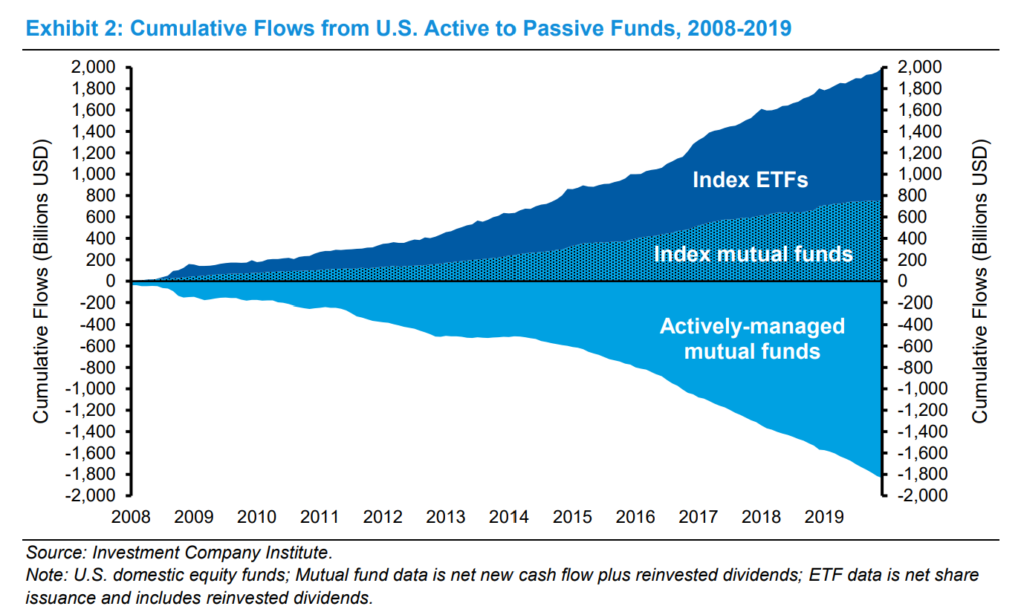
More is Better
To be sure, the shift from public to private investing comes with risks. First and foremost, most individuals are shut out from private investment markets. Only large, institutional investors have access due to regulations and practical matters. Also, reporting standards for private companies can vary and require more sophistication to decipher. They are more bespoke than for public companies. Another risk is that return dispersion is wide, indicating the importance of proprietary deal flow.
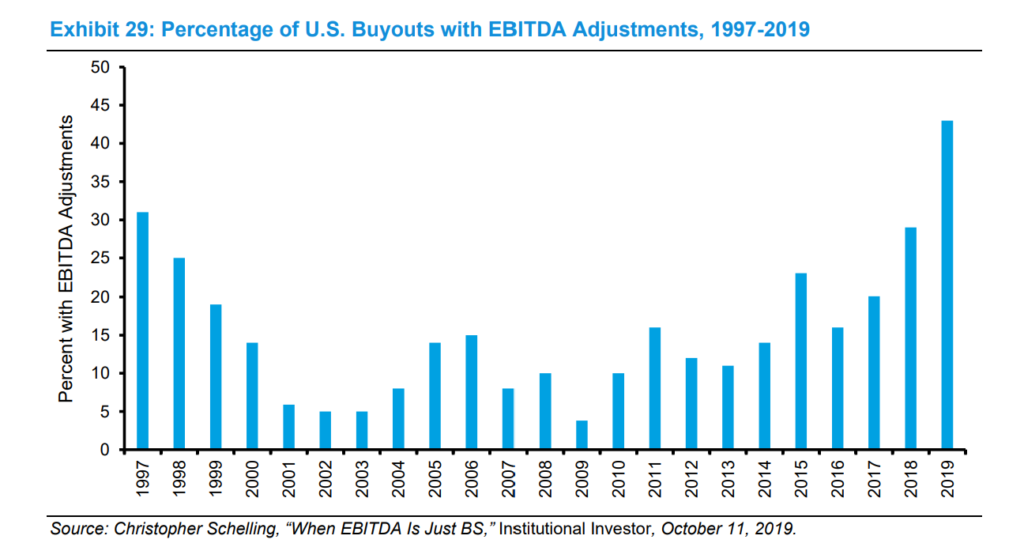
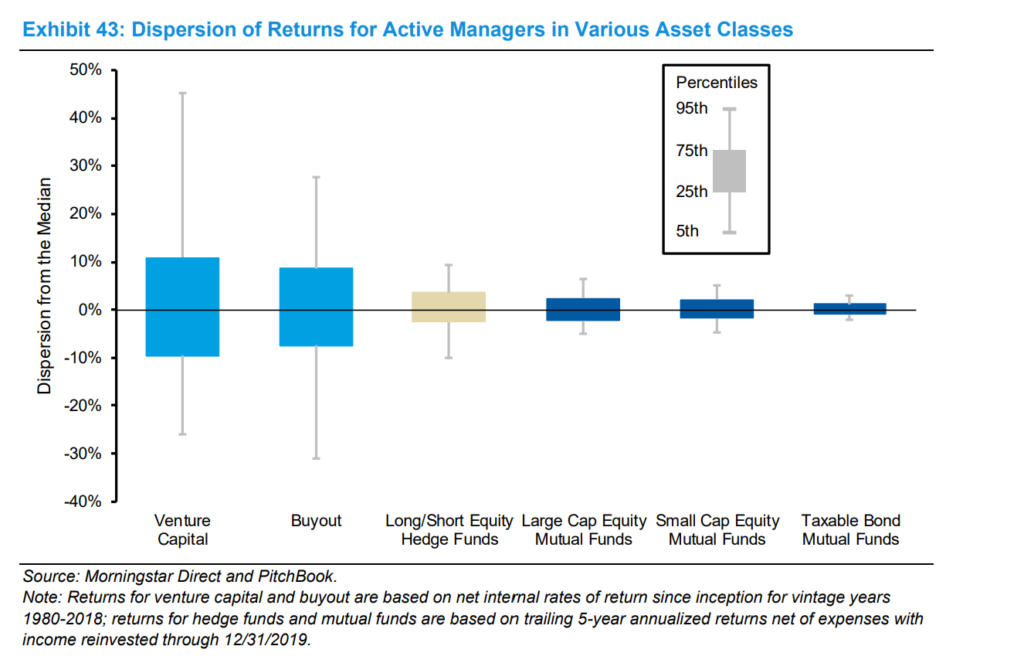
The largest drawback of private investments versus public ones is their illiquidity. Private investments are harder to sell and convert into cash. Hence, their values can be difficult to assess during one’s holding period accurately. This feature has likely dampened private investments’ perceived volatility and their correlations with other assets, thereby understating their true risks.
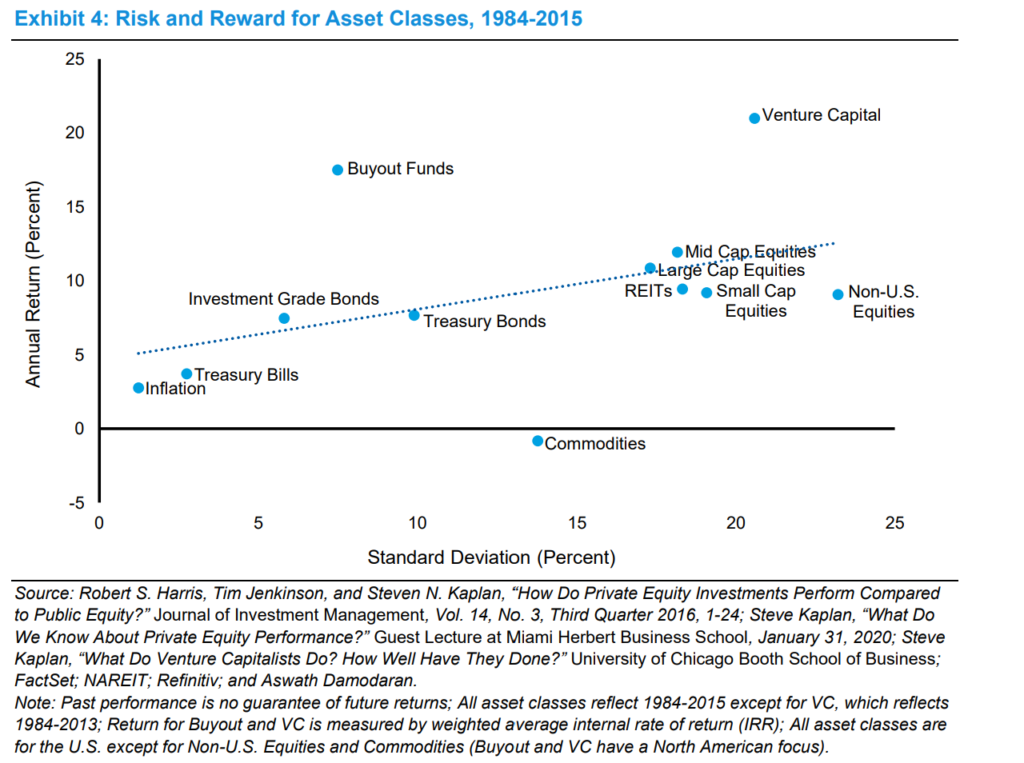
However, private market investing also has benefits. First, they tend to have higher returns to compensate investors for the (obvious) drawbacks. Their institutional ownership also yields advantages. Governance and operational efficiencies can improve with more sophisticated owners. Also, capital markets’ professionalization likely facilitates a greater number of value-creating financial transactions and with greater complexity. These have widespread positive impacts.
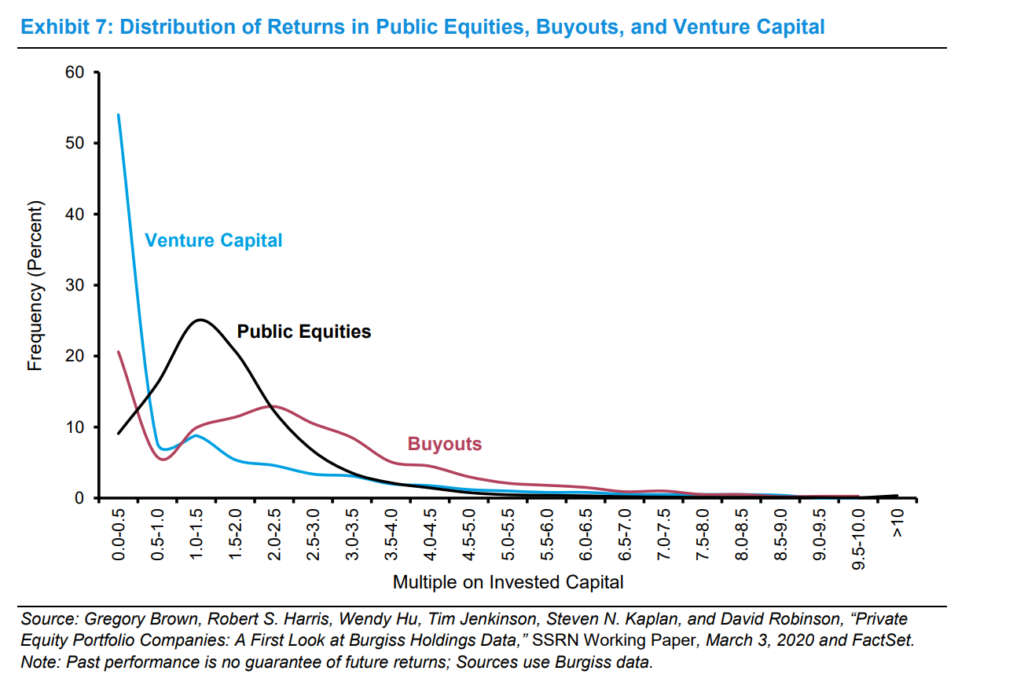
Above all, though, private markets increase available investment choices. More options allow for more experimentation, the greater discovery of financial knowledge, and, ultimately, increased prosperity. This is critical when government interventions in public markets stunt their growth.
Private markets can act as a safety valve and allow capital to leave the markets forcing it into suboptimal investments and allowing it to flow into better alternatives.
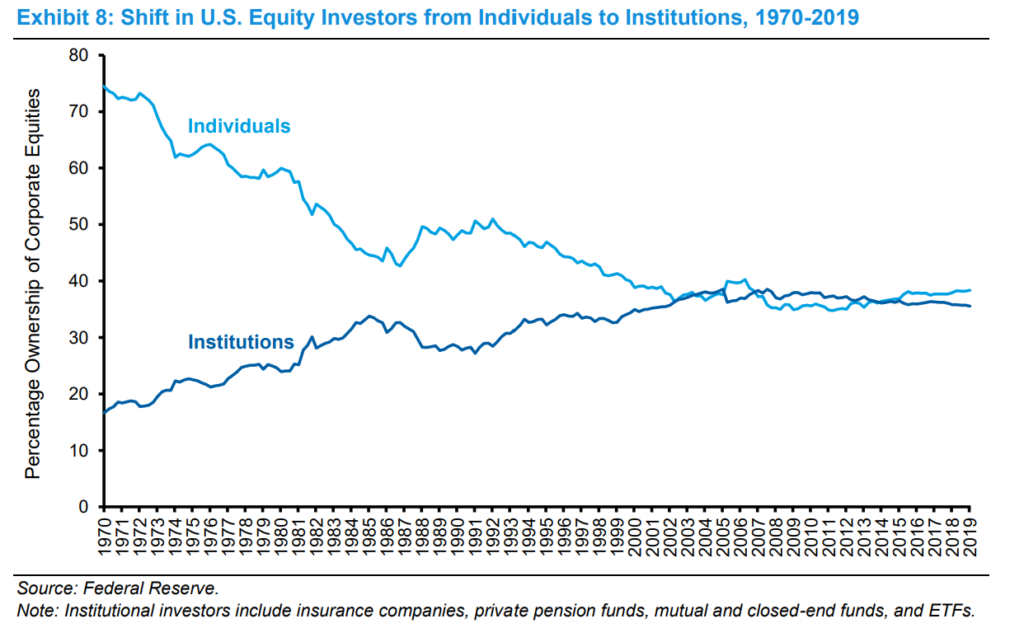
Life Finds a Way
While the public markets appear to be dying by the hands of central bankers, passive investors, and any number of bogymen, private investments are undergoing a renaissance. Inflows into private equity, venture capital, and private debt markets have surged over the years as investors seek new and higher return streams. While they’re no panacea, the growth in private investment markets may not be the decay that’s popularly claimed.
The growth in private investing illustrates the power of free-flowing capital. Humanity is too creative to let harmful, artificial barriers slow progress. Life always finds the way. While capital allocators are going extinct in public markets, they are reborn in private ones.
Investment markets are not dead. They are evolving. This movement should ultimately facilitate financial innovation, increase productivity, and create more prosperity for all.

